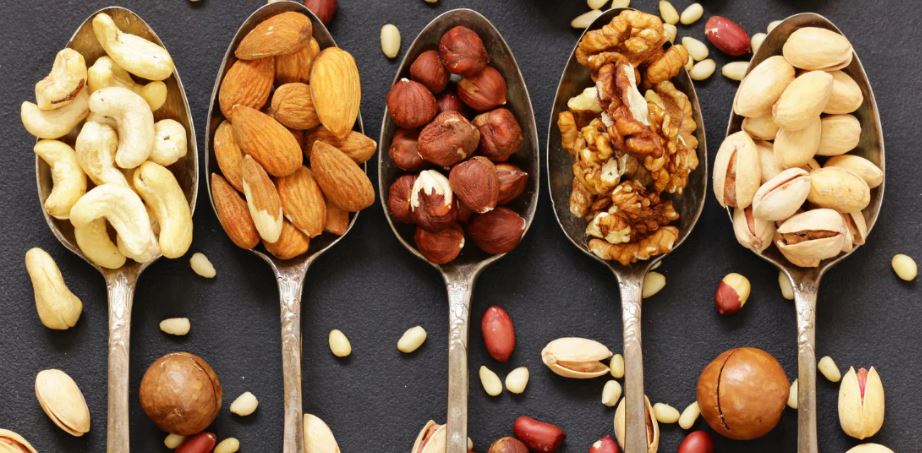KATHMANDU: With festivals around the corner, the prices of dry fruits have skyrocketed, impacting consumers across Nepal. Traditionally, dry fruit prices would peak during Tihar due to high demand, but this year, the prices have surged even before Dashain begins.
According to traders, the demand for dry fruits has remained consistent throughout the year. However, importers have reported higher purchasing costs, which have, in turn, driven up retail prices. This increase in prices is affecting popular dry fruits like cashews, almonds, walnuts, raisins, dried coconut, cinnamon, black pepper, figs, cloves, cardamom, and areca nuts.
The rise in wholesale prices is making dry fruits increasingly expensive for consumers. Many purchase them as gifts for loved ones during the Dashain festival, and the sharp price hike is adding to their festive spending burdens.
Steady Rise in Cashew Prices
Two months ago, the retail price of cashews was between NPR 1,600 to NPR 1,700 per kilogram, but now wholesale prices have surged to NPR 1,800, leading to a sharp rise in consumer prices. Similarly, the price of raisins and dried coconut has reached NPR 600 per kilogram, while walnuts, which had previously dipped to NPR 450 per kilogram, are now being sold for NPR 550 to NPR 600.
Almonds, priced at NPR 1,400 per kilogram in the last month, have now risen to NPR 1,600. Other dry fruits like cinnamon have seen prices rise to NPR 650 to NPR 700 per kilogram, while cloves have surged to NPR 1,900, and cardamom has reached NPR 4,000.
Supply Constraints Driving Price Hike
Traders explain that a limited supply of black pepper, areca nuts, and dried coconut compared to demand has contributed to their increased prices. Areca nuts now cost NPR 1,200 per kilogram, while black pepper has surged to NPR 1,800.
Traders explained that the wholesale price hikes have inevitably led to higher costs for consumers. “Prices have been gradually increasing as we approach Dashain and Tihar, when consumption typically rises. With wholesale prices climbing, retail prices have naturally followed suit,” the trader said.
Traders said that market demand for dry fruits has outstripped supply, which could also be contributing to the rise in wholesale prices. “At present, cashews are in short supply, and when available, wholesale prices range from NPR 1,800 to NPR 2,000 per kilogram. When wholesale prices are this high, there’s no chance of retail prices dropping,” he explained.
Traders Cite Customs Regulations for Price Increases
Wholesal ers are attributing the price hike to stricter customs regulations. Basanta Gaire, the owner of Kanulla Store in Dhumbarahi, observed that prices tend to fluctuate during periods of high demand, such as Dashain. “Large traders determine prices based on market conditions. With Dashain approaching, we are seeing a lot of volatility in dry fruit prices,” he said.
Kripesh Oli, the owner of Gandaki Store in Tokha, echoed these sentiments, highlighting the difficulty in sourcing cashews. “At present, cashews are costing NPR 1,800 per kilogram in wholesale, and even then, it’s hard to find them. So, it’s no surprise that consumer prices have climbed to NPR 2,000 per kilogram. Prices for all types of dry fruits have gone up,” he said.
Bhatt explained that even though retailers are adding minimal markup to wholesale prices, the increased base costs have made dry fruits expensive for consumers.
Import Surge for Dashain
Despite claims by importers that customs regulations have tightened, the import of dry fruits has not slowed. In fact, imports have risen in anticipation of the upcoming Dashain festival.
According to the Customs Department, in the first two months of this fiscal year alone, 176,000 kilograms of cashews, exempt and non-exempt, were imported. The total value of these imports amounted to approximately NPR 147.5 million.
Additionally, 114,000 kilograms of almonds worth NPR 91.8 million, 347,000 kilograms of walnuts worth NPR 110 million, and green and dried areca nuts worth NPR 200 million were imported.
As Dashain approaches, the soaring prices of dry fruits are expected to impact festive shopping for many consumers, while traders continue to blame supply constraints and customs regulations for the price increases.

